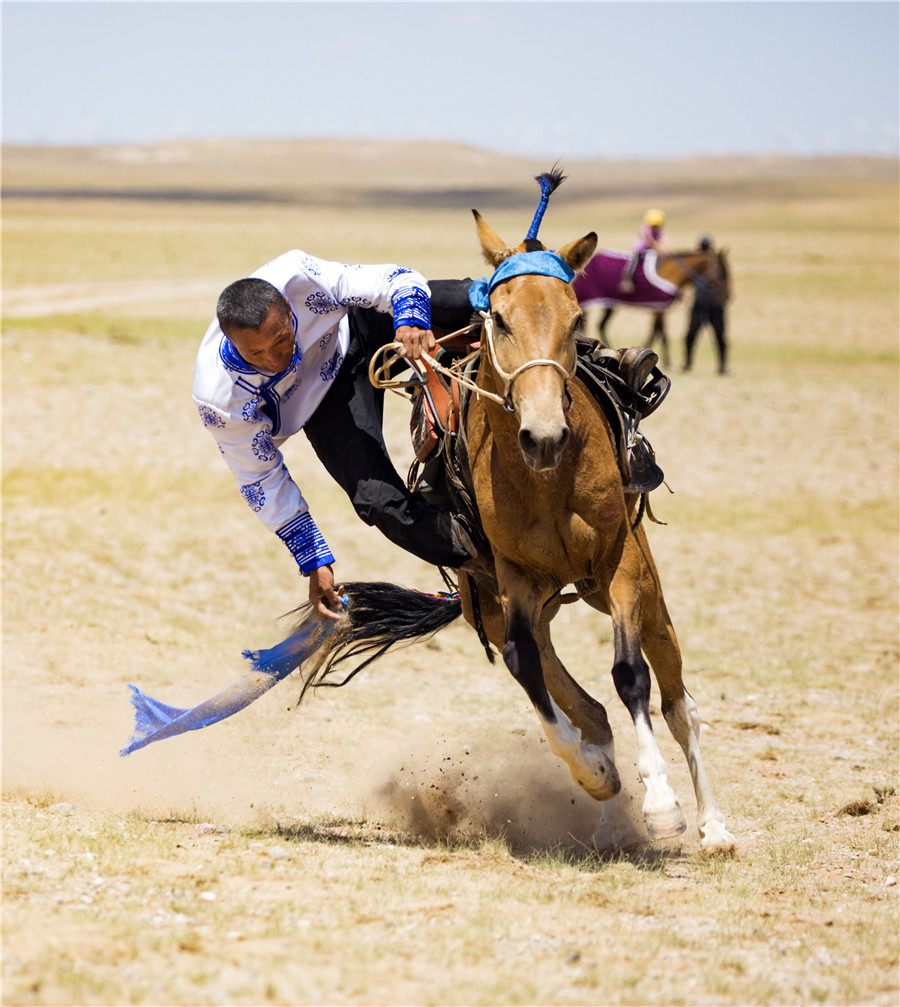Horsemen follow in steppes of Genghis Khan






Master of horses
Bayangol, 43, a horse racer and breeder, organized the competition, just as he has done many times over the years. His whole life in Inner Mongolia has been linked closely with horses. They're a family tradition. He raises the same golden breed that propelled Genghis Khan to fame.
Bayangol spoke approvingly of Urjin's performance.
"I gave him this horse because I could read the affection in his eyes," Bayangol said. "He performed well in the race. He is excellent."
Bayangol, who also raises sheep, swore 20 years ago that he would never raise horses. It took too great a toll on his emotions the first time he was forced to sell the animals to pay for his brother's cancer treatments.
Physically tough though he is, tears filled his eyes as he remembered. "I'm the fourth kid in my family, and we were poor. My brother got cancer when he was only 29, so the family decided to sell off the horses for 800 yuan each," Bayangol said. "I clearly remember getting on a mare and leading others to the buyer's trailer.
"I gently pulled out some of the mane of my favorite horse and tied the hair around my wrist as a memento. I was so sad and said to myself that I would never raise horses again because I cannot bear the separation."
Yet he has many good memories as well. Raising horses as a child with his family shaped him as an adult.
He broke his vow briefly in 1997 when he picked up two ponies at a time the region was experiencing a severe drought. The animals' mothers had died and they needed help.
"I used a nursing bottle to feed them and borrowed stallions to mate with them when they were mature. We had a strong emotional connection. I never needed to use a bridle or saddle to ride them. Selling them broke my heart."
Bayangol didn't touch horses for 10 years after that. But then he married Sarnaa, who has become his cherished partner. His new father-in-law gave him a white-spotted yellow horse, the most exalted breed in Inner Mongolian tradition - the war horse of Genghis Khan.
"If someone can raise these horses well, he will have good luck and secure his fortune," Bayangol said. "I was pretty nervous at first and turned to older generations of experienced breeders to learn what I needed to know about feeding. I got baby white-spotted yellow horses every year, which I considered great luck."
Now, Bayangol has more than 70 of the animals.
Qin Yu, head of the local association dedicated to the white-spotted yellow horses - and which sponsored the race - said there are about 200 members, including Bayangol. "We founded the association recently to protect the breed and develop tourism around the horses," he said. The group plans to sponsor more races and develop creative, culturally based products in the future.
- Spring Festival travel expected to reach record high
- C919 begins Shanghai-HK regular flight
- Mount Qomolangma's foreign tourist number doubles in 2024
- Yuyuan Garden lights up with Year of the Snake lantern installations
- New dendrobium orchid species found in Sichuan
- People welcome the New Year across China

































